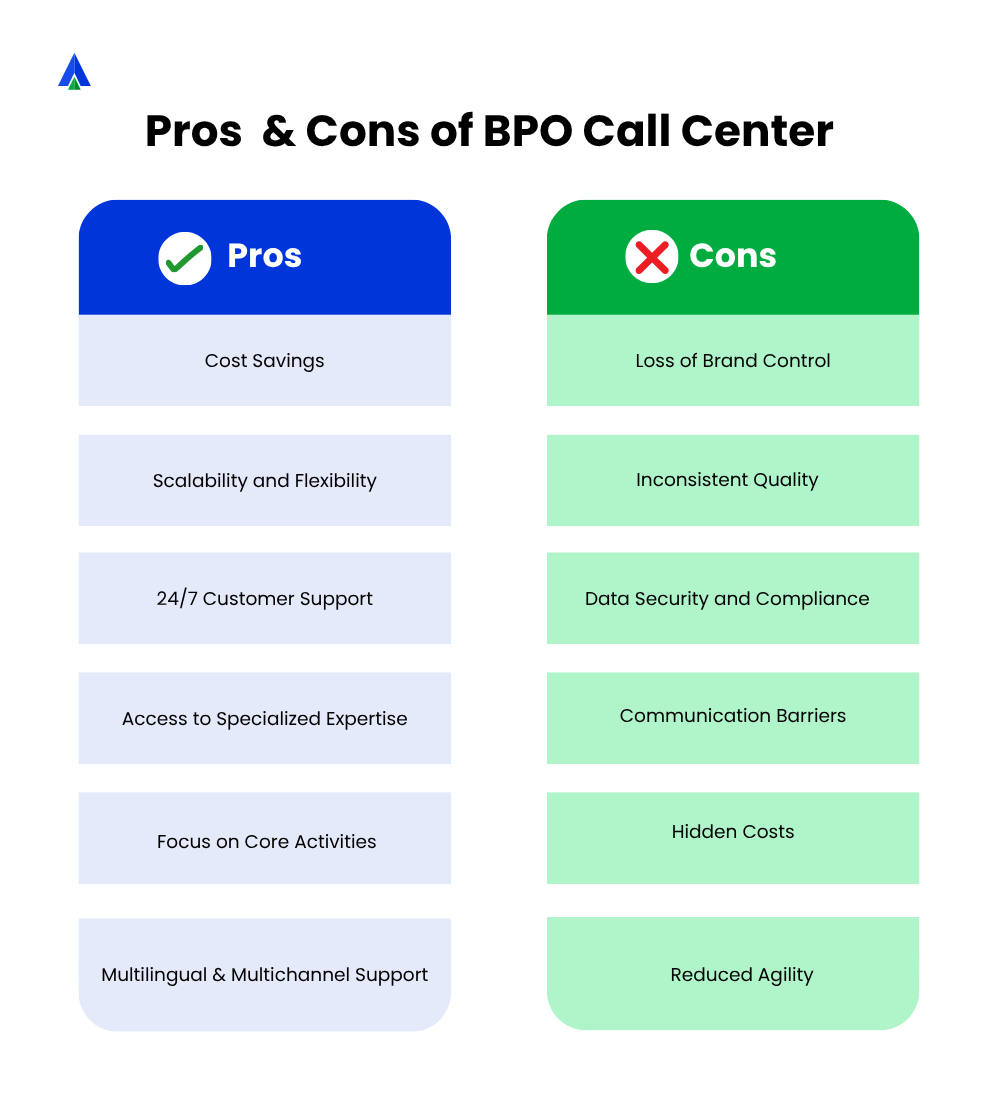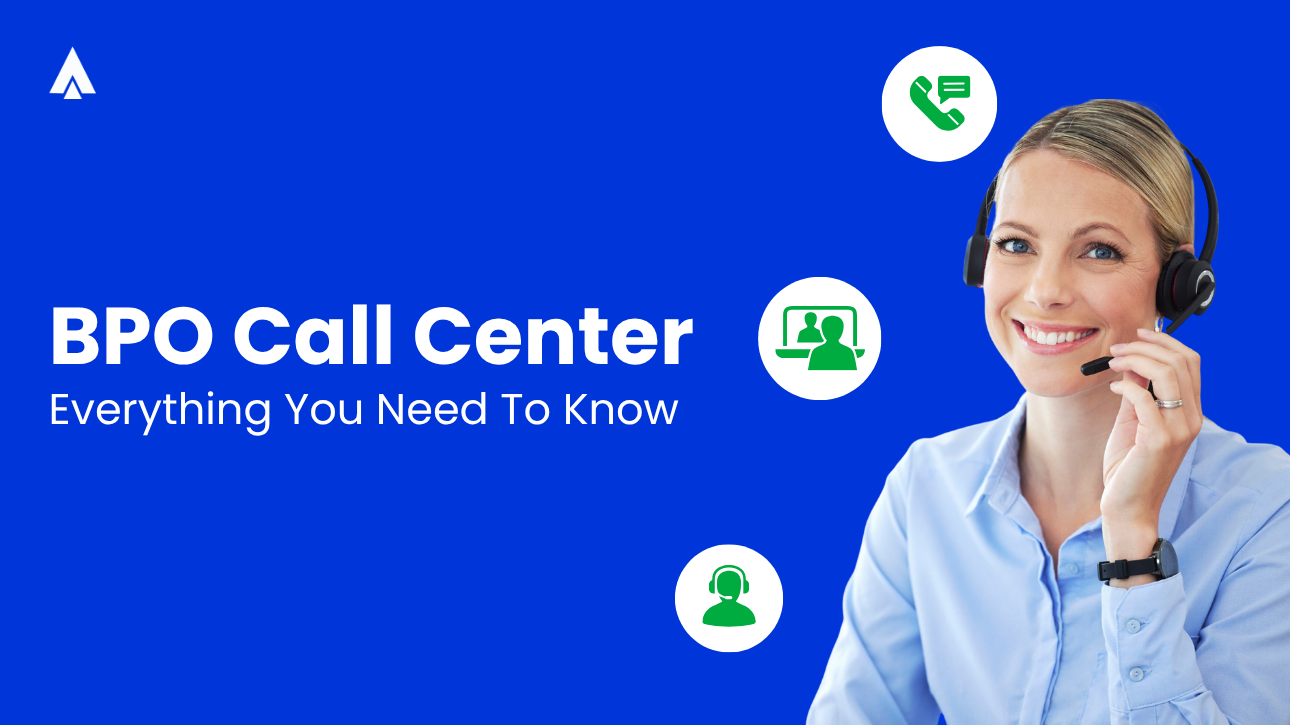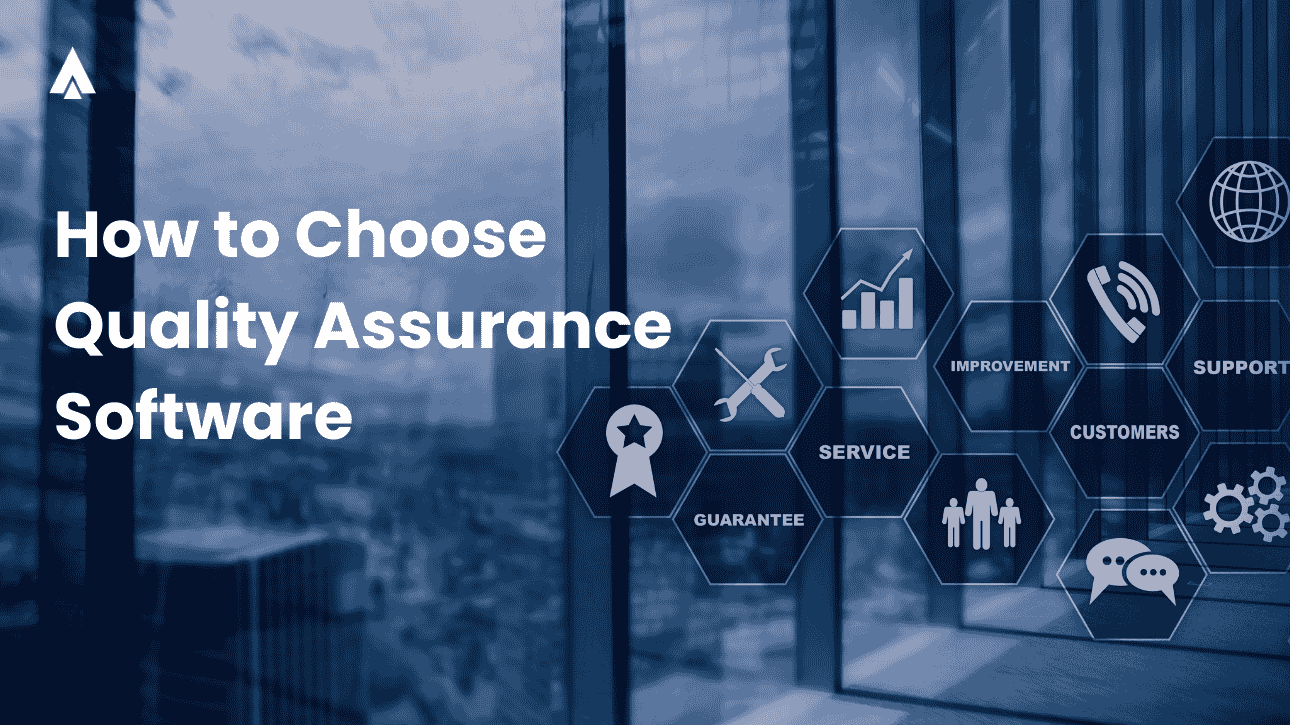The early 1990s marked the rise of BPO around the globe, with companies like Coca Cola and Kodak outsourcing their operations to third-party entities.
Three decades later, the BPO industry has spread its branches wide across the global market. Modern companies outsource their operations to gain several advantages such as cost savings, scalability, access to expertise, better customer experience, etc.
This blog focuses on what is a BPO call center is, exploring how outsourcing your business’s operations can benefit you on various avenues.
What is a BPO Call Center?
A BPO (Business Process Outsourcing) call center is a service provider that handles customer communications on behalf of other businesses. These centers manage tasks like support calls, lead generation, appointment setting, and technical assistance, allowing businesses to concentrate on core operations. Unlike traditional in-house contact centers, BPO call centers operate externally and independently, catering to multiple clients.
It’s also essential to understand the difference between a call center for BPO and other call centers. A traditional call center focuses on handling calls. Whereas a call center BPO is customized to the industry’s needs and offers a broader range of services.
If you’re new to this topic, start with What is a Call Center? Definition, Types & How they work to get a solid understanding of core concepts.
What are the Types of BPO Contact Centers?
Before diving deep into call centers for BPOs, it is also essential to understand their counterparts across industries. There are various kinds of contact centers, each serving a unique purpose.
Some are dedicated to activities like market research or providing answering services. Others cater to specific industries such as healthcare or specialize in tasks like telemarketing.
No matter what your business needs, there’s likely a contact center model that fits.
Let’s explore some of the main categories.
1. In-House vs. Outsourced Centers
In-house call centers are owned and operated by the company itself, meaning the staff are direct employees. These are often divided into “front office” roles, where employees interact with customers, and “back office” roles, where employees work behind the scenes.
In contrast, outsourced call centers are managed by external service providers, often referred to as BPOs (Business Process Outsourcing). When you use an outsourced center, their personnel handle your calls, not your internal team.
2. Inbound, Outbound, and Omnichannel Contact Centers
Inbound call centers deal with incoming calls from customers. If you’ve ever phoned a company for support or questions, you were likely speaking to an inbound center. Handle incoming customer communications, including service inquiries, technical support, and billing.
Outbound call centers focus on placing calls to customers or leads, often for sales purposes or surveys. If you’ve received a promotional call, it probably came from an outbound center. Initiate contact for purposes such as sales, surveys, or appointment follow-ups.
Then there are Acefone omnichannel contact centers, which go beyond just phone calls. These centers manage customer interactions across multiple channels—such as voice, email, live chat, and SMS—while keeping the experience consistent and seamless. This way customers can reach your team through their preferred platform without repeating themselves across different agents or channels.
3. Proactive vs. Reactive Centers
While similar to the inbound/outbound model, this comparison is more about approach.
Reactive centers respond to customer inquiries or problems as they arise. This is the traditional model most people are familiar with.
Proactive centers, however, reach out to customers before an issue is reported. Using tools like cloud-based software, CRM systems, and analytics, these centers identify and resolve potential issues in advance, leading to better customer experiences overall.
What are the Benefits of Using a BPO Call Center?
Irrespective of the type of BPO call center software you use, there are some common benefits across all industries. Collaborating with a BPO contact center offers cost-efficiency and access to top-tier talent. Coupled with auto dialer benefits, such as scalable dialing, higher answer rates, and improved lead conversion, outsourcing becomes an even more powerful strategy.
1. Cost Efficiency
Using BPO call center software can lead to significant cost savings for your business. By leveraging specialized expertise and talented professionals from different regions, contact centers can deliver high-quality services at lower costs.
2. Flexibility
BPO call center agents are skilled personnel with diverse expertise and skills. They also enable professionals to work from the comfort of their homes. This diversity enables businesses to access a broader range of expertise, specialized skills, and language capabilities.
3. Scalability
One of the key upsides of conducting your business functions to call center is scalability. This is because contact center BPOs are equipped to handle high call volumes as well as fluctuations, allowing you to scale your business based on your requirements. You can do all that without making significant investments in infrastructure or new recruitment.
4. Business Focus
You can redirect resources and attention towards more strategic initiatives and ROI-centric activities through bpo call center outsourcing. It enables you to drive innovation, improve core efficiency, and achieve long-term goals faster.
5. Professional Support
Contact centers are built to provide superior customer service. With professionals available 24/7, multilingual support, and tailored interactions, you can deliver exceptional customer experiences.

How to Choose the Right BPO Call Center Provider for Your Business?
You must consider several factors when evaluating potential contact centers for your business. One wrong choice can lead to cascading failure in the future:
1. Industry expertise
The first item on the list is relevant experience and expertise in your industry. Understanding your industry dynamics, customer preferences, and regulatory requirements is crucial for delivering tailored services that meet your specific needs.
2. Services offered
Evaluate the range of services the contact center offers you. You must ensure the services align with your business requirements. Whether you need inbound support, sales outreach, technical assistance, or back-office functions, the contact center should be capable of meeting your needs effectively.
3. Technological Advancement
Evaluate the software and other solutions the BPO contact center relies upon to deliver their services. Observe their calling solution, CRM systems, analytical tools, servers, network firewall etc. A balanced technology bundle is essential for delivering seamless and efficient services. The solutions enable integration with your systems and providing real-time insights into customer interactions seamless.
4. Safety Measures
You must prioritize data security and privacy when choosing a contact center. Ensure that the contact center has robust security protocols, compliance certifications, and failsafe measures to protect any leakage of sensitive information and mitigate the associated risks.
5. Cultural Alignment
Partnering with a contact center whose values, work culture, and communication style align with your organization’s ethics is an added benefit. It makes collaboration between both entities smoother, fostering prompt communication, clear goal understanding and a harmonious partnership.
6. Transparent Pricing
Evaluate the pricing structures and service level agreements (SLAs) to ensure the contact center has adequate transparency and alignment with your budget constraints. Once you understand the call center solutions pricing model, look for any additional fees/ charges, to avoid unprecedented expenses.
Learn More: Omnichannel Contact Center
How to Outsource BPO Call Center Services
Outsourcing your operations to a call center can be strategically advantageous for your business. It helps streamline various processes, enhance customer services, and drive team efficiency. Also, about 93% of organizations have implemented or are planning cloud services for their contact centers worldwide.
Here’s a step-by-step guide on how you can go through with a successful bpo contact center outsourcing:
Step 1: Define Your Objectives
You must define your business objectives before outsourcing the operations. Determine the specific functions you intend to outsource and why. You should also define the desired outcomes you aim to achieve with the collaboration.
Step 2: Evaluate Business Needs
Conduct a thorough evaluation of your operations, identifying areas that you need to outsource to the BPO contact center. Consider factors such as call volume (inbound & outbound), resource allotment, phone service infrastructure and service standards.
Read our Blog “What is an Inbound Call Center?” here.
Step 3: Research Potential BPO Call Center Providers
Research potential BPO call center providers. For that, keep the following in mind:
- Local or Offshore?
Decide whether you want your call center to be based locally or outsourced to another country. Each option has its advantages, local centers offer easier collaboration and oversight, while offshore centers can provide more cost-effective, round-the-clock support.
Understanding your specific needs will help you determine which option makes more sense for your business.
- Do You Need a Specialized Provider?
BPO call center providers often focus on specific industries or functions. They’re not one-size-fits-all. For example, a manufacturing company seeking technical support will require different expertise than a retail brand outsourcing HR tasks.
Choosing a provider with relevant experience ensures better service and smoother integration with your operations.
- Consider Your Budget
Establish a budget to see what’s financially feasible. If outsourcing ends up being more expensive than managing an in-house team, it may be time to reassess. You might find better value with a different provider or by combining in-house and outsourced support for a more balanced, cost-effective setup.
Step 4: Define Service Level Agreements (SLAs)
Lay out definite service level agreements with the potential BPO contact center vendors. Define the parameters for performance expectations, response time, and other key metrics that hold critical value to your business operations.
Step 5: Establish Communication Channels
Set up efficient communication channels and protocols between your business and the potential BPO contact center vendor. Assign a dedicated POC (point of contact) in your business to ensure smooth communication and valuable collaboration.
Step 6: Align Training and Resources
Plan and schedule learning sessions and required resources for the BPO contact center team to ensure clear understanding of your product/ services, brand values and service standards. Ensure that the delegated team gets access to the required tools, systems and knowledge base to enable seamless service delivery.
Step 7: Integrate Business Systems
Integrate your communication systems with the BPO contact center’s hosted contact center solutions. Successful integration facilitates effortless data transfer and workflow continuity
Step 8: Review and Optimize
Once the BPO contact center is in place, review the operations and evaluate the performance frequently. Also conduct surveys to gather feedback from your customers to identify improvement areas on both ends (your business and contact center vendor).
Recommended Read: Contact Center vs Call Center
Level up your Acefone BPO call center
We hope this blog post provided you with sufficient information about BPO call centers. To put it in a nutshell, outsourcing operations to such contact centers gives you the opportunity to save costs on unwanted expenses and resources. You can shift your attention toward enhancing your core functions, ensuring your business flourishes better.
Collaborating with a BPO contact center can allow you to experience the mentioned benefits with minimal risks. To ensure that your BPO contact center performs well, you can check out our cloud contact center solution that was designed to make outsourcing an effortless process.
Frequently asked questions
A call center for BPO operates by handling customer interactions for other companies. It uses trained agents, advanced software, and telecom systems to manage calls, emails, or chats. Businesses outsource tasks like support, sales, or inquiries to BPO call centers for efficiency, cost reduction, and around-the-clock service coverage.
A regular call center is often in-house and serves one company’s needs. A call center for BPO, however, provides outsourced services to multiple businesses. BPO call centers typically offer broader expertise, scalable staffing, and cost benefits, making them more flexible and resource-efficient compared to traditional in-house call centers.
Starting with a cloud-based call center for BPO is generally straightforward. Providers offer consultation, onboarding support, and customizable services. With clear goals and communication, businesses can integrate their systems quickly. The BPO manages recruitment, training, and operations, reducing the client’s workload and making the transition relatively smooth and manageable.
Yes, using a call center for BPO can significantly lower operational costs. Businesses save on recruitment, training, infrastructure, and salaries by outsourcing to regions with lower labor costs. Additionally, BPOs increase efficiency and scalability, reducing waste and allowing companies to focus internal resources on core operations and growth.
















